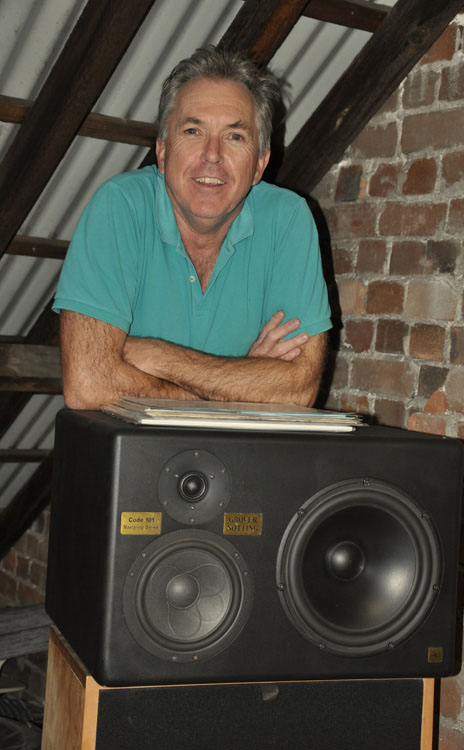John Simpson - in his words
I had an interest in sound from a very young age, always playing around with my Parents 1/4 “ reel to reel machine and various record players, and as I grew up I knew I wanted to be professionally involved in sound, its production and delivery.
My career began when I answered an ad in the paper for an assistant at United Sound Studios in Pyrmont, where I worked in the film mixing theatre and recording studios.
Then followed a return to London, I was born there, where I was fortunate to be taken on as a trainee with the BBC in the mid 1970s, pay as a trainee wasn’t great so using my United Sound experience I supplemented my income and stayed alive by assisting and engineering at several London studios. This was the beginning of the Reggae boom, very heady days they were, literally, new studios opening almost daily and closing just as quickly. I did get to watch, learn and ultimately work with many great engineers at major studios, and even more not so great engineers at a lot of dodgy studios, you can learn a lot from both types. I would record and mix at night and attend classroom lectures and train at the BBC by day, these lectures were by BBC technicians who at that stage had invented most of the Television standards of the day, all in all a fantastic experience for a young man.
Three years later I finished my BBC training, couldn’t face another winter, said my farewells and returned to Australia.
I joined the audio department at TCN-9 Sydney and stayed 18 years. Live television in those days was exhilarating, hilarious and demanding, and no one demanded more from you than the Nine Network. I worked on many live productions as first an assistant and then as Audio Director, all the while learning and trying new ways of achieving better results, which we had the luxury of doing as television was evolving rapidly and what worked last week suddenly didn’t the following week, however networks were supportive and we were allowed the latitude and, not so often, the money to implement changes and hopefully improvements. Although a quick look at a bloopers reel from those days proves not everything we tried was successful.
Today with my two partners, our company Final Mix Post is focused on providing audio production for television programmes including The Voice, X Factor, Australia’s Got Talent, Asia’s Got Talents, Shark Tank, MasterChef and I’m a Celebrity Get Me Out of Here to name a few. We are also called on to provide audio production for major events such as the national broadcast of Carols in the Domain and the recording and/or broadcasting of concerts such as Queen. I usually work in Australia, with some projects taking me to Asia and Africa.
Throughout my career, I’ve always tried to get by with the studio monitoring at hand, but was never convinced of their accuracy or their ability to translate well to all the platforms we cater for. I wondered why a particular monitor seemed to be the flavour of the month, used and recommended by all and then, suddenly, something else is the latest greatest, with both sounding completely different to one another. When I had the opportunity to audition Grover Notting it was a confronting experience, but one that ultimately proved a revelation. I’ve never experienced such pinpoint definition and linear response and its not just detail but correctness, rightness if you will, of response and balance that translates across all mediums we work in. After a lengthy audition I could never go back.
Final Mix Post now uses a variety of Grover Notting systems including Code 1.5s and Code 4s driven by Universal Series Power Plants, Code 9s driven by Low Frequency Augmentation Series Power Plants, and for Cross Reference Grover Notting CR-1s and CR-2s driven by CR-Driver power amplifiers. There is no doubt it has improved our workflow and increased the satisfaction element with no listener fatigue.
Often I find professionals listen with their eyes, it looks great so it must sound great, the opinions of others ringing in their ears, I have an aversion to hype. Grover Notting is a well thought out, no nonsense platform delivering precision and stability, exactly what I want in a tool to make and deliver good quality sound.
For reference purposes, I have installed a Grover Notting Code 101 Mastering Series system driven by Mastering Series Power Plants in my listening room, a situation that made me re-visit my favourite recordings, some of which are revelations and not always in a positive way, an enjoyable voyage of rediscovery you could say.
John Simpson

